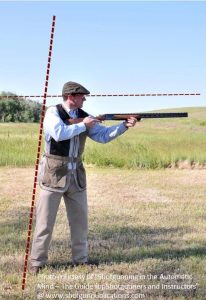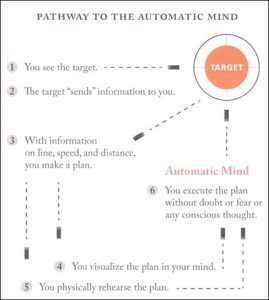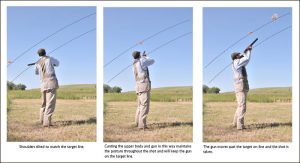Understanding Intuitive Shooting Techniques
Intuitive shooting is fundamentally about trusting one’s instincts and reflexes over relying on precise mechanical processes. Unlike traditional methods that require extensive focus on aiming techniques and calculations, intuitive shooting encourages shooters to “feel” their way to the target. This doesn’t mean there is a lack of technique; rather, the technique becomes internalized through practice, allowing for a more fluid execution. By promoting a connection between the body and mind, shooters can react faster and more naturally.

This approach is rooted in a philosophy that regards the shooter as an integral part of the process, rather than a separate entity from the equipment. It requires a deep understanding of one’s own physical and mental capabilities, as well as an intimate familiarity with the equipment in use. As such, intuitive shooting often becomes more of a lifestyle and mental discipline, rather than just a technique to be learned. It enhances the shooter’s awareness and responsiveness, making it particularly effective in dynamic situations.
Training for intuitive shooting often involves exercises that enhance muscle memory and develop a natural shooting style. The process usually includes repetitive practice in various scenarios to help the shooter become adaptable and instinctive. This training is less about hitting the bullseye every time and more about developing a reliable shot under unpredictable conditions. Over time, shooters learn to trust their instincts, which leads to a more organic and effective shooting experience.
Key Techniques for Developing Intuitive Skills
To develop intuitive shooting skills, one must engage in repetitive practice that focuses on enhancing muscle memory. This can be achieved through drills that emphasize the natural alignment of the body and the weapon. By repeatedly practicing the same movements, the shooter begins to internalize the process, making it second nature. This repetition helps build confidence and instinctual accuracy, allowing the shooter to respond swiftly without overthinking each shot.
Visualization is another critical technique in cultivating intuitive abilities. By mentally rehearsing scenarios and visualizing successful outcomes, shooters can prepare their minds to act instinctively in real situations. This psychological preparation is essential as it helps shooters develop a sense of calm and focus when facing unexpected challenges. Visualization can significantly enhance a shooter’s ability to react quickly and effectively, even under pressure.
Incorporating mindfulness techniques into training can further boost intuitive shooting skills. Mindfulness practices, such as meditation and controlled breathing, improve concentration and situational awareness. These techniques help shooters maintain a clear mind and steady nerves in high-pressure situations. By being fully present and aware of their surroundings, shooters can make better instinctual decisions, thus enhancing their overall effectiveness and reliability in dynamic shooting scenarios.

Benefits of Mastering Intuitive Shooting Methods
Mastering intuitive shooting methods offers numerous benefits, particularly in terms of speed and adaptability. Shooters who rely on their instincts rather than conventional aiming techniques can respond more quickly in unpredictable situations. This increased reaction speed can be critical in scenarios where time is of the essence, such as in self-defense or competitive environments. Intuitive shooters are often more adaptable, able to adjust their approach as needed without being constrained by rigid protocols.
Another advantage of intuitive shooting is the enhanced sense of confidence it provides. As shooters become more attuned to their instincts, they develop a greater trust in their abilities. This self-assurance can be empowering, reducing hesitation and improving decision-making. With increased confidence, shooters are better equipped to handle the psychological stressors that may arise during high-stakes situations, leading to more effective performance.
Intuitive shooting also promotes a deeper connection between the shooter and their equipment. As shooters learn to trust their instincts, they naturally become more in tune with the subtleties of their gear. This heightened awareness allows them to make quick adjustments and corrections, ultimately leading to improved accuracy and reliability. Mastering intuitive shooting thus not only enhances a shooter’s technical skills but also fosters a holistic understanding of the shooting process.
Common Misconceptions About Intuitive Shooting
One common misconception about intuitive shooting is that it lacks precision and accuracy. Critics often believe that relying on instinct rather than meticulous aiming leads to haphazard results. However, intuitive shooting is not about abandoning accuracy; it is about achieving it through different means. With proper training and experience, intuitive shooters can be just as accurate as those employing traditional techniques. The key lies in internalizing the process and developing a natural, instinctual approach.

Another fallacy is that intuitive shooting is purely innate and cannot be learned or improved through practice. While it’s true that some individuals may have a natural aptitude for instinctive shooting, anyone can develop these skills with dedication and the right training methods. The process is akin to learning any other skill, where consistent practice and a willingness to adapt are crucial. With time and effort, shooters can significantly enhance their intuitive capabilities.
Lastly, many believe that intuitive shooting is exclusively for advanced practitioners. In reality, intuitive shooting can be beneficial for shooters at all skill levels. Beginners can start incorporating intuitive methods early on in their training to build a solid foundation of reflexive skills. As they progress, they can continue to refine and enhance these abilities. For experienced shooters, adopting intuitive techniques can offer a fresh perspective and new challenges, contributing to ongoing growth and development in their craft.
In conclusion, intuitive shooting is a dynamic and adaptable approach that emphasizes the natural synergy between the shooter and their environment. By prioritizing instinct over rigid procedures, intuitive shooting fosters a responsive and confident shooting style. While it may challenge conventional perceptions, its benefits in terms of speed, adaptability, and self-assurance make it a valuable skill set for shooters of all levels. Understanding and embracing intuitive shooting can lead to a more fulfilling and effective experience in the art of shooting.
# # #


Comments